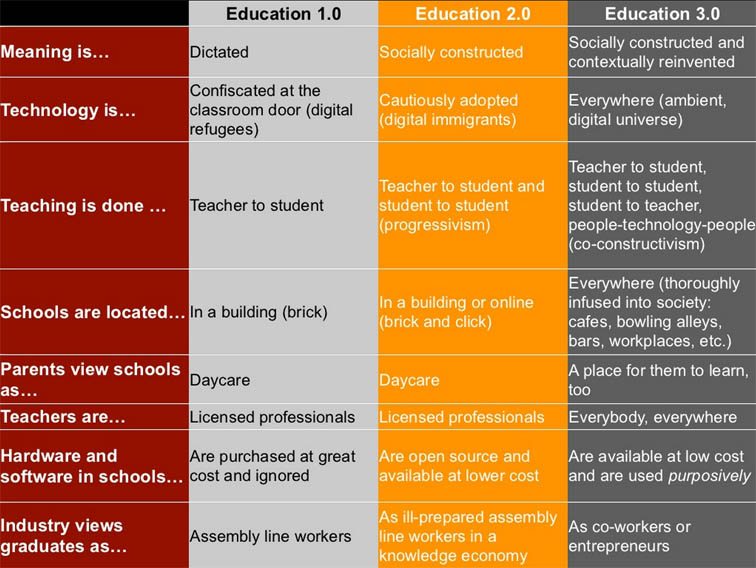8 Characteristics Of Education 3.0
by TeachThought Staff
Something “point-oh” has entered the modern vernacular as a response to our digital world. Unlike physical “stuff,” digital stuff is more fluid–constantly iterating and evolving at often breakneck speed.
It’d be difficult to suggest that public education is doing much of anything at breakneck speed, but the idea behind this presentation is to clarify how it has changed, and where it could be headed. Just as web 1.0 turned to 2.0, there are new generations of education as well. In a separate post, we’ll take a quick look at the full presentation by John Morevec that this came from that explored the idea of invisible learning, but I thought this image deserved a closer look on its own.
This chart is broken up into three categories–Education 1.0 (the old way), 2.0 (the current way), and 3.0 (the future way). Whereas Education 1.0 was closed and industrial, 3.0 is open and ubiquitous. It is admittedly a mix of roadmap and dreamworks, but isn’t everything?
One immediate takeaway for right here, right now K-20 educators might be numbers 4 and 6: Beyond literacy night and conferences, how can we involve busy parents–even as they might resist–early on in the learning process, leveraging not just their authority as parents, but their occupational experience, professional networks, and related real-world interests for learning?
8 Characteristics Of Education 3.0
1. Meaning is social constructed and contextually reinvented
2. Technology is everywhere (digital universe).
3. Teaching is done teacher-to-student, student-to-student, and people-technology-people (co-constructivism)
4. Schools are located everywhere (fully infused in society)
5. Parents view schools as a place for them to learn, too
6. Teachers are everybody, everywhere
7. Hardware and software in schools are available at low cost and are used (strategically)
8. Industry views graduates as co-workers or entrepreneurs
Image source, Perspective on Invisible Learning by John Moravec


